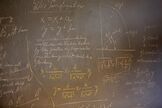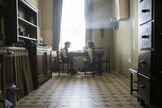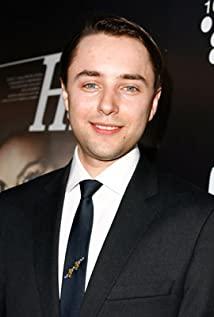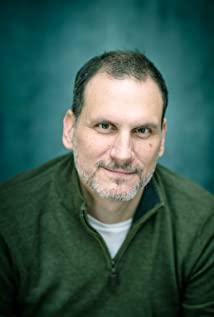Einstein-Marić), a Serbian female physicist, the first wife of the famous physicist Albert Einstein. Mileva was born in Titel, Serbia (then part of the Austro-Hungarian Empire) in 1875. After graduating from high school, she was admitted to the University of Zurich in Switzerland to study medicine, and then transferred to the Swiss Federal Institute of Technology in Zurich to study mathematics and physics. While studying at ETH Zurich, Mileva met Albert Einstein, who married in 1903 and divorced in 1919. The two had a daughter (whereabouts unknown) and two sons: Hans Einstein (eldest son) and Edward Einstein (second son). Mileva died in Zurich, Switzerland, in 1948. After her studies, she transferred to Zurich because female students could not take exams elsewhere. When she first arrived in Zurich, she signed up to study medicine, but then changed her mind to study physics and mathematics. At the time, she was in the same class as Einstein. Love experience There were 5 students who entered the Swiss Federal Institute of Technology in 1897 to study theoretical physics, and Mileva was the only girl. She is quite intelligent and has a high professional level in mathematics and physics. Later historians of physics have even argued that Einstein's views on relativity came in part from her. Her unique temperament deeply attracted Einstein, and the two soon fell in love. Einstein once wrote in his love letter: "How lucky I am to find you, an equal and as strong and independent as me! I feel lonely with anyone but you. "..."Here, thinking of you is the only thing that makes me feel that life is truly meaningful. It would be great if thinking could have a little life, flesh and blood!..." After falling in love with Einstein, the two Inseparable, learning together, discussing scientific issues together. In 1901, Einstein wrote to her: "If I want to do the relative motion project successfully, only you can help me. How happy and proud I am!" Passionate love made the two neglect their studies. In 1900, Einstein's exam passed only at an intermediate level, but Mileva failed. When she was preparing to take the make-up exam, an unexpected thing happened, she was pregnant. Under the circumstances, an out-of-wedlock pregnancy would have meant that the future of a young scientist would be in vain. Mileva resolutely returned to her parents, where she gave birth to a daughter, named Liesel. The child was born unsound, presumably suffering from a mental disorder. After that, no one knew about the child. She might have died, or she might have been adopted by someone else. But for sure, Einstein never saw his daughter. Marriage Despite family objections, Einstein and Mileva officially married in 1903. At the time, Einstein was working in the patent office as a "technologist". That same year, when Einstein began writing his doctoral dissertation, he said, "I need my wife who can solve math problems for me." For Mileva, giving up her career was all about marriage and love. How she escaped from the loss of her daughter remains unknown. After marriage, she put her mind entirely on her husband and did everything she could to help Einstein. She took care of all the housework, and in order to earn money to subsidize her family, she also set up a family hotel for college students. Mileva with her son Hans Albert in 1907. In 1904, their son was born and named Hans Albert. 1905 was Einstein's harvest year, in which he published five papers that revolutionized the natural sciences. Mileva proudly told a friend: "We have accomplished an important job that will make my husband famous!" In 1909, Einstein was awarded a professorship in Zurich. That same year, Mileva was heartbroken when news of his sex with other women spread. In 1910, their second son was born, but the little fellow was just as ill-fated as his sister, suffering from mental illness all his life. In 1911, Einstein, then a well-known professor, went to Prague. With a woman's intuition, Mileva felt that catastrophe was imminent. Sure enough, it wasn't long before Einstein began to fall in love with his cousin Elsa. To this end, in 1914 Mileva prevented Einstein from going to Berlin to work at the Royal Prussian Academy of Sciences. Einstein was very annoyed by this, he informed his wife in writing that if you want to keep the marriage, you must meet the following conditions: A. You should ensure that my clothes and bedding are clean, I have three meals a day, and my job is guaranteed. The room is clean and tidy, especially to remind that no one else can use my desk. B. Give up all relationships between us, unless I attend social events, especially don't let me sit with you at home, go out or travel with you. C. Pay attention to the following when interacting with me: Don't expect me to be nice to you and not get angry. If necessary, you must immediately terminate the conversation with me. As long as I ask, you must leave the bedroom or work room unconditionally. D. You are obliged not to despise me with words or actions in front of the child. A few months later, the helpless Mileva returned to Switzerland with her two sons, while Einstein remained in Berlin. Mileva and her children lived in Zurich during the First World War, while Einstein and what later became him The second wife, Elsa, was living in Berlin. In 1916, Einstein wrote to Mileva asking for a divorce. This news was a bolt from the blue for Mileva, who was in trouble physically and financially at the time, but she had no other choice. In 1919, Mileva agreed to divorce, but she offered to share part of the Nobel Prize. In 1921, when Einstein got the bonus, he did pay her some, but exactly how much she got is still a mystery. In her later years, all the happiness in the world left Mileva away. In order to treat her youngest son Edward, she spent almost all her savings, and later, she could only make a living by teaching piano. In the 1930s, her eldest son went to the United States with his wife and children, and Mileva remained in Switzerland, caring for her sick son, almost living in seclusion. Mileva died of a stroke in 1948 after she was hopelessly paralyzed. People found 80,000 Swiss francs in her mattress. She was buried in an unmarked tomb in Zurich during which time Einstein lived for a long time in Princeton. His marriage to his second wife, Elsa, married in 1919, was also not happy. This is how he evaluates the marriage: a marriage that was unsuccessfully attempted, sustained by some chance. Elsa knows nothing about physics, and he admits that his ex-wife can help him academically. In fact, Einstein was not emotionally loyal to Elsa, but Elsa loved her husband deeply and tolerated the "lonely genius"'s peachy scandals one after another. Fortunately, the women who came into contact with Einstein were dead set on him. After the death of his wife, he lived with his adopted daughter, Margot Loewenthal, and his longtime secretary, Helena Dukas, until his death in 1955. living a secluded life. Mileva died of a stroke in 1948 after she was hopelessly paralyzed. People found 80,000 Swiss francs in her mattress. She was buried in an unmarked tomb in Zurich during which time Einstein lived for a long time in Princeton. His marriage to his second wife, Elsa, married in 1919, was also not happy. This is how he evaluates the marriage: a marriage that was unsuccessfully attempted, sustained by some chance. Elsa knows nothing about physics, and he admits that his ex-wife can help him academically. In fact, Einstein was not emotionally loyal to Elsa, but Elsa loved her husband deeply and tolerated the "lonely genius"'s peachy scandals one after another. Fortunately, the women who came into contact with Einstein were dead set on him. After the death of his wife, he lived with his adopted daughter, Margot Loewenthal, and his longtime secretary, Helena Dukas, until his death in 1955. living a secluded life. Mileva died of a stroke in 1948 after she was hopelessly paralyzed. People found 80,000 Swiss francs in her mattress. She was buried in an unmarked tomb in Zurich during which time Einstein lived for a long time in Princeton. His marriage to his second wife, Elsa, married in 1919, was also not happy. This is how he evaluates the marriage: a marriage that was unsuccessfully attempted, sustained by some chance. Elsa knows nothing about physics, and he admits that his ex-wife can help him academically. In fact, Einstein was not emotionally loyal to Elsa, but Elsa loved her husband deeply and tolerated the "lonely genius"'s peachy scandals one after another. Fortunately, the women who came into contact with Einstein were dead set on him. After the death of his wife, he lived with his adopted daughter, Margot Loewenthal, and his longtime secretary, Helena Dukas, until his death in 1955.
I can only comment that Einstein was very unsuccessful in his marriage life. His first wife succeeded with him, and he gave his dream to be Einstein's nanny, but was finally abandoned.
Step on two boats
I never realized that women's liberation, equal rights, doing academic science, obtaining academic positions, and abolishing marriage and family seem so important. This is a pain in the short term, but it is an important reward in the long run. Thinking about it, it seems like a historical trend. People are unstoppable, and from our reality, we are not as good as 20th century Europe.
View more about Genius reviews











